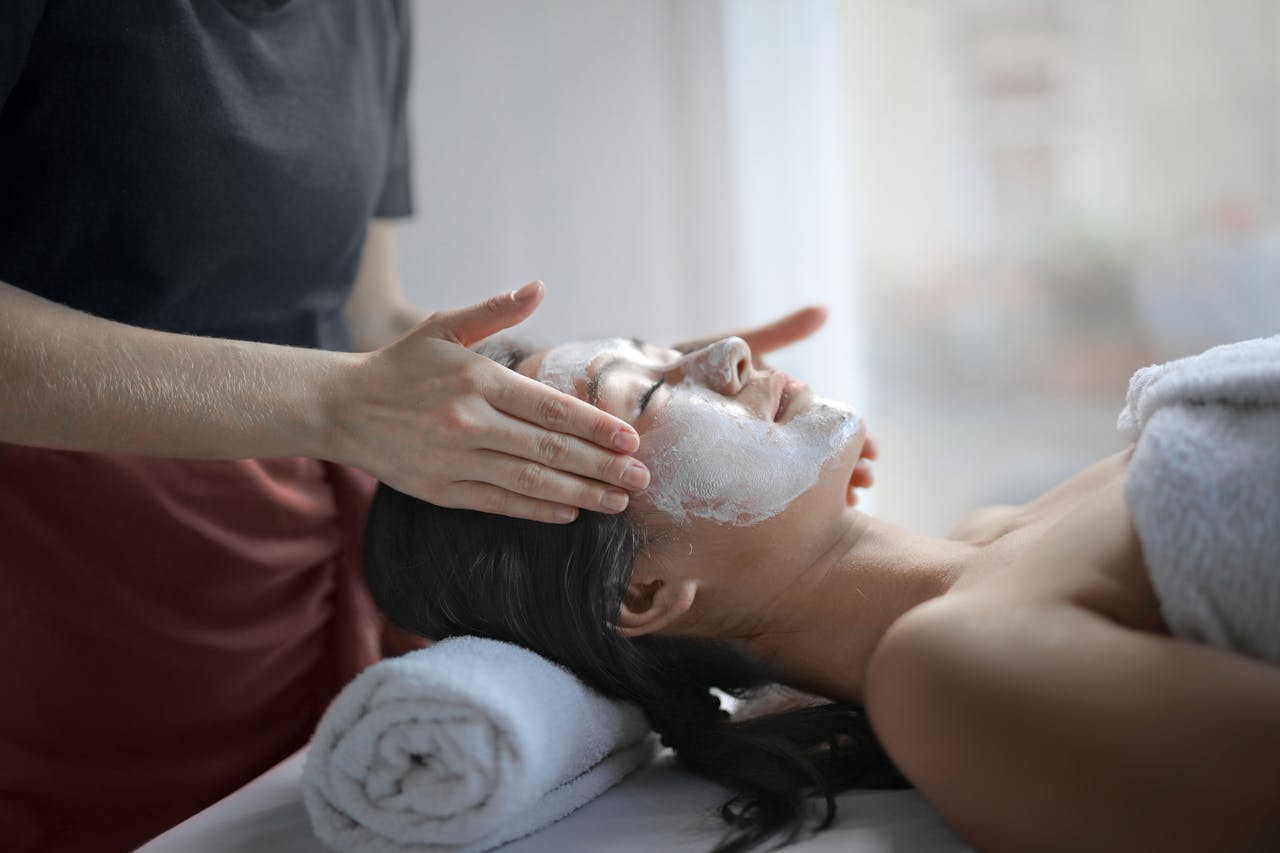Take Care of Your Skin: In today’s fast-paced world, finding the time to take care of oneself can often fall by the wayside, particularly when it comes to skin care and treatment. The skin, being the largest organ of the body, plays a crucial role in protecting against external factors and can significantly impact our overall health and confidence. Thus, understanding how to effectively take care of it is not merely a luxury but a necessity. This article aims to shed light on the significance of maintaining a healthy skin care routine and offers advice from experts in the field, highlighting the importance of custom-tailored skin care approaches for achieving optimal results.
The subsequent sections of this guide will delve into crucial aspects that everyone looking to take care of their skin should know. Firstly, it will cover the importance of recognizing one’s skin type, as this knowledge serves as the foundation for any effective skin care regime. Following this, readers will be presented with advice on establishing a daily skin care routine that caters to their specific needs. Special attention will also be given to handling specific skin concerns, ensuring readers are well-equipped to address issues ranging from acne to aging. Lastly, additional tips for maintaining healthy skin will be discussed, providing a comprehensive toolkit for anyone aiming to enhance their skin care and treatment practices.
Table of Contents
Know Your Skin Type
Understanding your skin type is essential for effective skin care. According to the American Academy of Dermatology (AAD), there are five primary skin types: oily, dry, normal, combination, and sensitive. Each type has unique characteristics that influence the choice of products and care techniques.
How to Identify Your Skin Type To Take Care of Your Skin
To identify your skin type, you can perform simple tests at home. The blotting sheet method involves pressing a clean blotting paper on different areas of your face. If the paper picks up oil from the forehead, nose, and chin, it indicates oily skin. Alternatively, the “watch and wait” method requires washing your face, waiting for 30 minutes, and observing how your skin reacts. Does it feel tight (indicative of dry skin) or does it shine (suggesting oily skin)?
Common Skin Types Explained
- Oily Skin: Appears shiny and feels greasy, particularly in the T-zone. This skin type may have enlarged pores and is prone to acne.
- Dry Skin: Feels tight and may be flaky or itchy. It lacks natural oils, making it appear dull.
- Normal Skin: Well-balanced and not prone to excessive dryness or oiliness.
- Combination Skin: Features both oily and dry areas, typically with an oily T-zone and dry cheeks.
- Sensitive Skin: Reacts easily to irritants, often feeling itchy or showing redness.
These characteristics can change due to factors like age, climate, and hormonal shifts. Regular observation and adjustments to your skin care routine are recommended to address these changes effectively.
Daily Skin Care Routine
To maintain a healthy and radiant complexion, a well-structured daily skin care routine is essential. Here are the critical steps one should incorporate:
- Cleansing: Start your day by using a gentle cleanser to remove overnight build-up of oils and impurities. This prepares your skin to absorb subsequent products effectively.
- Using Serums: After cleansing, apply a serum tailored to your skin’s needs. Options include antioxidants like Vitamin C for protection against environmental damage, or hyaluronic acid for hydration. Serums should be applied to clean skin to ensure optimal absorption.
- Moisturizing: Following serum application, use a moisturizer that suits your skin type. Moisturizers help to lock in the serum’s benefits and keep your skin hydrated throughout the day. For those with oily skin, gel-based moisturizers are recommended as they provide necessary hydration without adding excess oil.
- Sunscreen Application: The final and crucial step is applying a broad-spectrum sunscreen with at least SPF 30. This protects against UV rays that can cause premature aging and skin cancer. Sunscreen should be reapplied every two hours, especially if you are outdoors, to ensure continuous protection.
By adhering to these steps, individuals can effectively safeguard their skin and enhance its overall health and appearance.
Handling Specific Skin Concerns
Treating Acne
Acne can lead to inflammation and uneven skin tone, often resulting in redness or hyperpigmentation, particularly in darker skin tones. To effectively manage acne, it is crucial to consult a board-certified dermatologist who can recommend appropriate treatments. Additionally, maintaining a clean skin routine and choosing gentle, non-abrasive products can prevent aggravation. For persistent cases, treatments like topical retinoids or antibiotics may be prescribed to reduce oil production and combat bacterial infection.
Managing Dry Skin
Dry skin requires a careful balance of hydration and protection. Dermatologists suggest short, lukewarm baths or showers and immediate application of moisturizers that are more effective in ointment or cream form. Using gentle, fragrance-free products and staying hydrated by drinking plenty of water can also alleviate dryness. In severe cases, a prescription ointment or cream may be necessary to heal very dry skin and prevent flaking or cracking.
Preventing Hyperpigmentation
Hyperpigmentation, such as sunspots or melasma, often results from excessive sun exposure or skin inflammation. Protecting the skin from the sun by wearing broad-spectrum sunscreen daily and covering up with hats and protective clothing can prevent new spots from forming. Ingredients like Vitamin C, niacinamide, and retinol can help reduce existing hyperpigmentation by promoting cell turnover and reducing melanin production. For home treatments, using products containing these ingredients can gradually improve skin tone and texture.
Additional Tips for Healthy Skin
To maintain healthy skin, it is crucial to avoid harmful DIY hacks that can damage the skin’s barrier. Instead of using harsh, untested homemade products, opt for clinically approved treatments specifically designed for your skin type and concerns. This approach prevents potential issues such as irritation, infection, and discoloration.
Stay Hydrated
Hydration plays a pivotal role in skin health. Increasing your daily water intake can significantly improve skin hydration, especially for those who typically consume less water. Aim for 8-10 glasses per day and consider incorporating foods high in water content like fruits and vegetables to enhance skin moisture and elasticity.
Eat a Balanced Diet
Eating a diet rich in vitamins, minerals, and antioxidants is essential for vibrant skin. Foods such as avocados, salmon, and leafy greens provide the nutrients needed to support the skin’s natural barrier and prevent common skin concerns. Additionally, avoiding excessive alcohol and caffeine can help maintain your skin’s hydration levels, as these substances can lead to dehydration.
Conclusion
Throughout this article, we’ve explored crucial insights and practical advice for maintaining healthy skin, emphasizing the importance of recognizing your skin type as the foundation for an effective skin care routine. Tailoring your regimen to address the specific needs of your skin, whether it be managing acne, combating dryness, or preventing hyperpigmentation, is essential for achieving and preserving a radiant and healthy complexion. Expert recommendations guide you in crafting a daily routine that not only caters to your skin’s unique conditions but also enhances its natural defences against environmental stressors.
As we conclude, it’s clear that the journey to healthy skin is both a commitment to understanding and caring for your skin’s individual needs and a test of consistency in practicing proper skin care habits. The benefit of adhering to these expert tips transcends mere aesthetics; it’s about nurturing your skin’s health to bolster your confidence and overall well-being. Let this guide serve as a cornerstone for your personalized skin care journey, encouraging you to give your skin the attention and care it rightfully deserves.
FAQs
What are the essential tips for maintaining healthy skin?
To ensure your skin remains healthy, follow these five crucial tips:
- Shield your skin from the sun to prevent damage.
- Avoid smoking, as it accelerates aging and contributes to wrinkles.
- Be gentle with your skin during your care routine.
- Consume a nutritious diet to support skin health.
- Manage stress, which can negatively affect your skin’s appearance.
What constitutes the 5 fundamental steps of a skin care routine?
The five foundational elements of a skin care regimen include:
- Cleansing the skin to remove dirt, oil, and makeup.
- Exfoliating to remove dead skin cells and unclog pores.
- Balancing the skin’s pH level to prepare it for moisturization.
- Hydrating and nourishing the skin.
- Protecting the skin from the sun to prevent damage and premature aging.
How can I enhance my skin care practices?
To improve your skin care routine, consider these strategies:
- Regularly wash your face to maintain cleanliness.
- Protect your skin from sun damage by avoiding prolonged exposure, using sunscreen, and wearing protective clothing.
- Steer clear of tanning beds and sunlamps, as they emit harmful UV radiation.
- Prevent skin dryness by moisturizing.
- Reduce stress, which can impact skin health.
- Ensure you get sufficient sleep.
- Communicate any skin concerns with a professional.
What is the correct order for a comprehensive skin care routine?
A thorough skin care routine should follow these steps:
- Cleansing: Begin with cleaning your skin to remove impurities.
- Exfoliation: Use an exfoliant to eliminate dead skin cells and impurities.
- Mask: Apply a mask tailored to your skin’s needs.
- Toner: Use a toner to balance your skin’s pH.
- Serum or Concentrate: Apply a serum or concentrate for targeted treatment.
- Eye Contour: Care for the delicate eye area with a specific product.
- Moisturizing Cream: Hydrate your skin with a moisturizer.
- Sun Protection: Always finish with sun protection to guard against UV damage.




